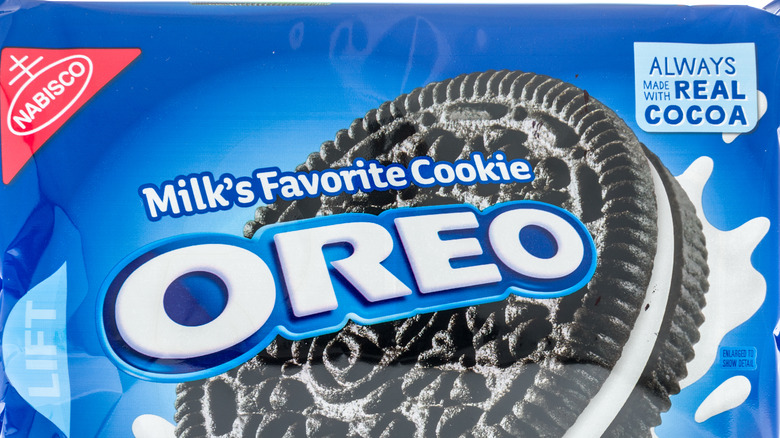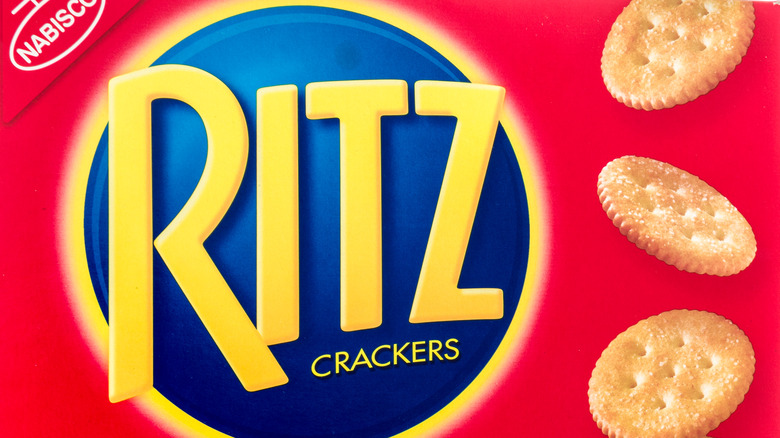The Real Reason Nabisco Workers Are On A Massive Strike
Nabisco might not be a household name — but we'd bet good money that you've eaten their products, among them Oreos, Chips Ahoy!, Ritz, and Premium Saltine crackers (via Wilamette Week). Now, if the Nabisco factory workers' national strike continues for much longer, your favorite snacks might be hard to find.
How big is the strike, exactly? The protest started last week in Portland, Oregon, and has since spread to Richmond, Virginia, and Aurora, Colorado according to Eater. It doesn't seem to be letting up. On the contrary, it's picking up supporters, among them former presidential candidate Bernie Sanders (via Twitter) and Hollywood heavyweight Danny DeVito. On August 18, DeVito urged his followers on Twitter not to buy Nabisco products until its parent company Mondelēz, concedes to the strikers' demands. Meanwhile — per Vice – Frito-Lay workers from Kansas (who went on strike recently to end triple-overtime shifts) have sent Nabisco workers on picket lines pizza.
The striking workers, as led by the BCTGM International Union, are going to need all the support they can get to successfully negotiate with the snack giant. In late July, Mondelez celebrated that its profits had nearly doubled in the last quarter. Despite the company's earnings increase, Mondelēz wants to restructure its overtime pay policies, a move that workers say would cost them tens of thousands of dollars a year in wages. And that's just the tip of the iceberg.
This is what pushed Nabisco factory workers to strike
Striking Nabisco workers will tell you that if Mondelēz is facing a storm, it's been brewing for a while now. Even before threatening to drastically restructure overtime pay, factory workers were regularly confronted with another monster: the possibility that their factories — and with them their jobs — might relocate to Mexico. That's what happened in 2016 when a Mondelēz company in Chicago sent 600 jobs to Mexico after the union refused to accept $46 million in annual wage and benefit cuts in exchange for equipment upgrades at a 62-year-old factory (via In These Times). New Jersey and Georgia production lines closed down earlier this year, although the company denies that outsourcing had anything to do with the layoffs (via HuffPost).
Then came the pandemic. During it, workers took on 12-16 hour shifts, almost without stop (via Vice). "People can be forced to working up to 60 – 70 days," one worker testified on a Twitter video. "I've personally worked 45 days in a row without a day off." And now, Mondelēz is proposing restructuring overtime hours, such that a worker would receive normal pay (regardless of shift length or day of the week worked) until they hit a 40-hour workweek (via Eater). Under the new structure, eight-hour shifts and 12-hour shifts would pay the same, and mandatory weekend work would increase, per Vice. Not only this, but new hires would receive health care plans with fewer benefits.
Mondelēz, for its part, has insisted in a statement that its contract proposals are "competitive."

